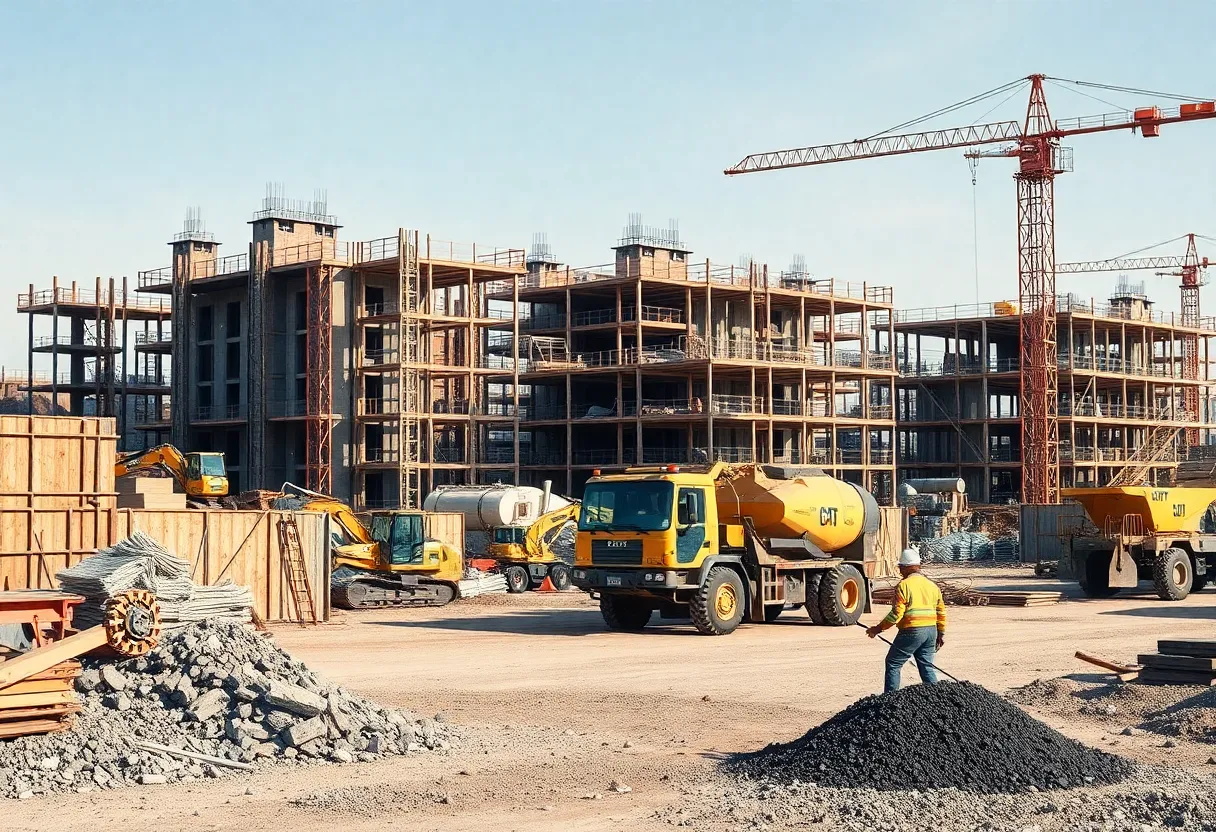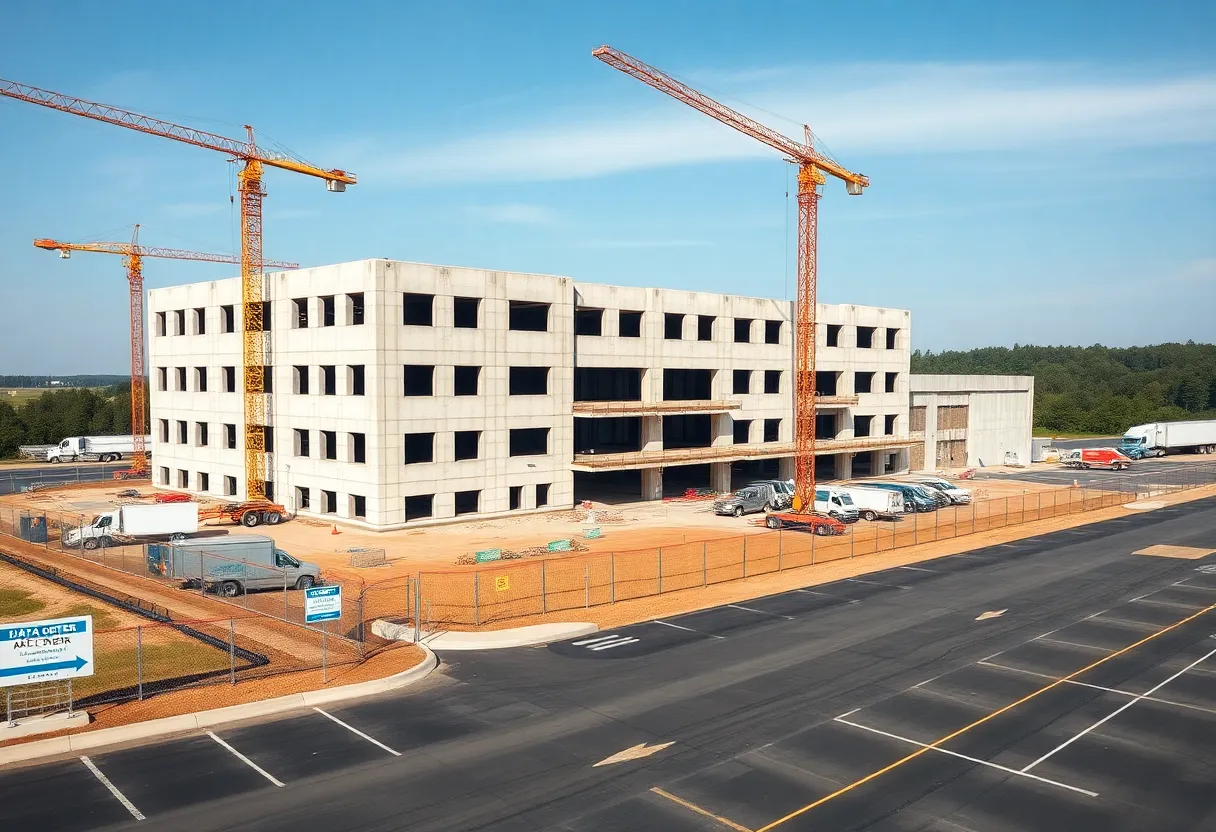News Summary
President Trump has signed significant tax reforms aimed at advancing the construction industry and critical minerals production. Key provisions restore tax incentives essential for contractors, including bonus depreciation and Section 179 expensing. Support from industry associations underscores the importance of financial planning and investment growth. Enhanced tax credits for research and development, along with new measures for energy-efficient building, signal a crucial shift. These reforms address longstanding challenges and aim to fortify market conditions, making it vital for construction firms to adapt and advocate for future incentives.
Major Tax Reforms Boost Construction Industry and Critical Minerals Production
On July 4, 2025, President Donald Trump signed into law a significant piece of legislation known as the Comprehensive Budget and Tax Act. This new law stands as a substantial achievement for the construction industry, promising to revitalize various sectors and enhance economic growth. Industry leaders have praised the reforms, which are aimed at creating a more stable and predictable business environment.
Leading associations in the construction field, including the Sheet Metal and Air Conditioning Contractors’ National Association (SMACNA) and the Associated Builders and Contractors (ABC), have expressed strong support for these new tax provisions and extensions. Central to the reforms are the restoration of important tax initiatives such as bonus depreciation and Section 179 expensing, both of which provide significant financial benefits to businesses in the construction sector.
Key Features of the New Law
The Comprehensive Budget and Tax Act particularly enhances provisions related to the CHIPS Act, which offers valuable tax credits and research and development (R&D) incentives. These changes aim to stimulate innovation and support contractors in their pursuit of advanced technologies. The restoration of immediate expensing for R&D costs provides direct financial relief to contractors, enabling them to invest in future projects without the burden of upfront tax liabilities.
Furthermore, the legislation includes provisions that exempt overtime pay from federal income taxes, allowing employees and contractors to benefit from their hard work without the additional tax stress. These measures have been hailed as essential for improving both employee morale and contractor profitability.
Concerns and Future Advocacy
While the construction industry celebrates these victories, there is an acknowledgment that more advocacy is necessary, particularly for energy-efficient building incentives. Industry leaders have highlighted the importance of continuing to push for additional support to ensure long-term sustainability and competitiveness within the sector.
Both SMACNA and ABC have pointed out the looming concerns regarding the expiration of several contractor-friendly residential tax credits, which are set to expire between 2025 and 2026. There is a strong call for continued momentum regarding regulatory reforms to maintain the competitiveness of contractors in the evolving marketplace.
Implications for Critical Minerals Production
The new law also includes measures aimed at boosting the production of critical minerals, essential for the clean energy sector. A separate provision, highlighted in the One Big Beautiful Bill Act, modifies the Internal Revenue Code’s Section 45X. This establishes a tax credit for manufacturers producing eligible components for clean energy technologies. Notably, metallurgical coal has been added to the list of critical minerals, qualifying it for tax credits under Section 45X.
From 2026 to 2029, companies that produce metallurgical coal can benefit from a tax credit that equals 2.5% of their production costs. However, it’s important to note that tax credits for other critical minerals will gradually phase down, starting with a 10% credit and decreasing to zero by 2033. This shift reflects a broader initiative to promote American mineral production while supporting coal production as part of the nation’s energy strategy.
Looking Ahead
In conclusion, the Comprehensive Budget and Tax Act marks a pivotal moment for the construction industry and critical minerals sector. Industry stakeholders are encouraged to review upcoming projects for eligibility and to maximize new benefits afforded by this legislation. As the industry moves forward, the commitment of organizations like SMACNA and ABC to ongoing advocacy will be crucial in securing additional incentives and ensuring long-term growth.
Deeper Dive: News & Info About This Topic
Additional Resources
Author: Construction NY News
NEW YORK STAFF WRITER The NEW YORK STAFF WRITER represents the experienced team at constructionnynews.com, your go-to source for actionable local news and information in New York and beyond. Specializing in "news you can use," we cover essential topics like product reviews for personal and business needs, local business directories, politics, real estate trends, neighborhood insights, and state news affecting the area—with deep expertise drawn from years of dedicated reporting and strong community input, including local press releases and business updates. We deliver top reporting on high-value events such as the New York Build Expo, infrastructure breakthroughs, and cutting-edge construction technology showcases. Our coverage extends to key organizations like the Associated General Contractors of New York State and the Building Trades Employers' Association, plus leading businesses in construction and real estate that power the local economy such as Turner Construction Company and CMiC Global. As part of the broader network, including constructioncanews.com, constructiontxnews.com, and constructionflnews.com, we provide comprehensive, credible insights into the dynamic construction landscape across multiple states.





